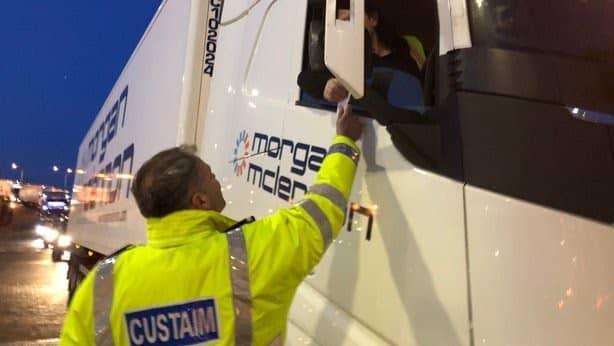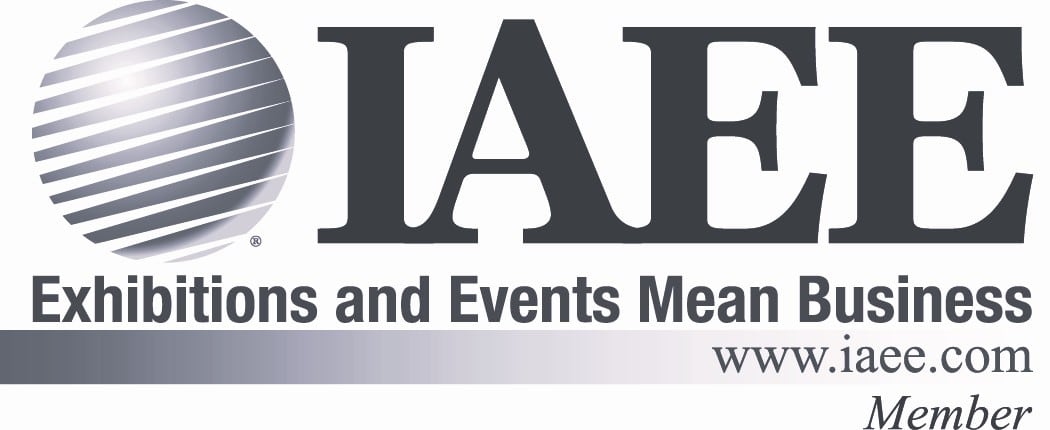
If you own or run a business, what is it that you should be doing now to prepare?
It hasn’t gone away you know. It just faded into the background for a while, displaced by the Covid-19 pandemic.
But this week’s developments in London and Brussels have thrust the raw reality of Brexit right back into the spotlight.
The extraordinary strategy adopted by Boris Johnson’s government has at best spooked and at worst scared the socks off Irish businesses.
“This is not a drill,” Tánaiste Leo Vardakar told Morning Ireland during the week, as he implored companies of all sizes to act now to get ready for 1 January.
Here are the 10 things your firm should do to prepare.
1 – EORI number
If your business is going to be trading with companies or organisations on the UK mainland (this doesn’t apply to Northern Ireland) after 1 January, one way or another you will need an EORI number.
This is a tax reference number issued by Revenue Customs. If you haven’t got one, the procedure for getting it is simple. You go online to Revenue’s ROS website and fill in the online form. Your number should be issued very quickly, and certainly within three days.
More information is available at www.revenue.ie/brexit and in the coming days Revenue will be contacting up to 90,000 firms it expects to be impacted by Brexit to help them prepare.
You may also require a UK EORI if you are responsible for UK import/export declarations. You can get one by registering with HMRC.
2 – Customs
No matter what happens with the Brexit negotiations between the EU and UK over the coming weeks, Irish based firms trading in and out of the UK after 1 January will face customs returns and other red tape.
You might decide to handle this yourself in-house and if so the Government’s recently announced grant of €9,000 to help pay for the cost of taking on or redeploying someone into a customs role could help. However, if you want to use someone outside your firm, you may find it difficult to find anyone, as there is a serious shortage of clearance agents here, with an estimated 2,000 needed.

“Talk with your hauliers, talk with freight agents and try to get someone to act on your behalf to help get goods in and out of the country,” said Carol Lynch, Partner in Customs and International Trade at BDO.
There is also loads of customs training available for free at the moment. Skillnet is about to launch a free online training course for 2,500 people and Enterprise Ireland has one too. While Chartered Accountants Ireland will have a course from October.
3 – Logistics
It is really important that you contact your suppliers and logistics providers about the continuity of goods and services you need for trade. Make sure anyone you are working with in the UK knows that free trade declarations are needed and let them know where on the route customs declarations will be required.
“Have that conversation now, flesh out the supply chain, see where you are touching the UK, where you need to get in and out of the UK, with the end result that you don’t have a delay to your customer,” said Cróna Clohisey, Public Policy Lead with Chartered Accountant’s Ireland.
4 – Landbridge
If you use non-UK suppliers, you should also check whether they use the UK as a land-bridge. If they do, find out whether this will cost and cause delays. The UK has signed up to the Common Travel Convention, which means that if you are routing goods through the UK, there won’t be delays.
However, recent reports have suggested that there could be chaos at British ports come 1 January, with huge backlogs impacting the speed of transit.
“It is very positive that they have signed up to the convention, and that will mean the goods can ship through the UK without having to be checked, or without having to be stopped,” said Cróna Clohisey.
“But there is extra paperwork that would need to be filled in to do that.”
5 – Tariffs
If there is no free trade agreement struck between the UK and the EU, then tariffs will apply. Companies therefore need to classify the goods that they import or export for customs duties and know their origin.
They also should work out how much the tariffs will be, which is not a simple process.
“That is probably the most complicated part of customs,” said Carol Lynch. The six-digit World Trade Organisation code will depend on what sub-category your product falls into and the amount of customs duty that applies then flows from that. The origin point also matters because the tariff that applies depends on where it has come from.
For example, if you are trading a raw material that undergoes processing before being made into something else, it is where the raw material and processing takes place that counts.
6 – Finances
New customs duties will inevitably lead to extra costs – not just for the tariffs and VAT which have to paid immediately on import, but also the price of administering it all.
“You are going to have to pay customs duties if there is no trade agreement, so where are you going to get the credit?” asked Cróna Clohisey.
There are Government supports available to help with this, such as the Brexit Loan Scheme or the loans available for small businesses from Microfinance Ireland.
Larger traders can use a Deferred Payment Account which allows them to put off paying customs duty by a month. But in the main, cash flow will be important and a challenge too, particularly for smaller firms.
7 – Currency
If you are already trading with the UK you will have no doubt noticed the recent slide in the value of Sterling. Currency fluctuations can be a great risk to those involved in international trade, so you may want to get some advice on how to mitigate it.

“Based on the feedback we are getting from companies a lot of companies have acted on this already,” said Giles O’Neill, head of the Brexit Unit at Enterprise Ireland.
“But I think they are going to have another look now, based on the current currency movements.”
Hedging is one option, but banks and other financial advisers may have other suggestions.
8 – Who is the importer/exporter of record?
According to Carol Lynch, it is important that companies here talk to their customers and suppliers and figure out who is acting as the importer of record and who is acting as the exporter of record.
“If you are an Irish company selling into the UK, there is a lot or pressure coming on Irish companies to act as the importer into the UK,” she said.

“Similarly, if you have a supplier selling to you from the UK they need customs clearance, to be registered for VAT, etc if they are acting as the importer.”
So get in touch with all those involved and make sure you have it all figured out prior to 1 January.
9 – Licensing/certification
It is important that you check whether your current certifications, licences or authorisations will be valid post-Brexit. The EU has its own quality certification systems, and up until now, a lot of EU companies used UK bodies to authorise their products and say they are in line with EU rules.
“Obviously now they cannot do that,” said Cróna Clohisey.
“So you need to get another source basically. They are called notified bodies. You might need to transfer your certificate to another member state.”
If you don’t you might suddenly find that your product no longer technically meets EU standards and therefore cannot be traded within the EU any longer.
10 – Supports
There are many government supports and resources available to help you through all of this. Financial assistance is available through the Credit Guarantee Scheme, Brexit Loan Scheme and Microfinance Ireland loans.
So far, uptake on the Brexit Loan Scheme has been low enough, with just €56 million of the €300m available drawn down. Enterprise Ireland also offers a range of different grants for customs, consultancy and other uses.
The Department of Enterprise and Enterprise Ireland also have a significant body of resources available on their websites and Local Enterprise Offices will help too, including with mentoring. Intertrade Ireland also has a range of planning and implementation vouchers available.
Ultimately though, good communication will be key to businesses getting prepared it seems.
“Talking to your UK customer, understanding what they think they should be doing or are willing to do or could be doing, those conversations need to be had so you don’t reach January and say, ‘oh, I thought you were doing that’,” said Giles O’Neill
This week EI will launch a Brexit readiness checker to help people assess their preparedness and direct them to supports.
Because, there is no doubt now that Brexit is coming.
The question is, is your business ready for whatever it might bring?
Credit to Will Goodbody for this report.
continue reading



